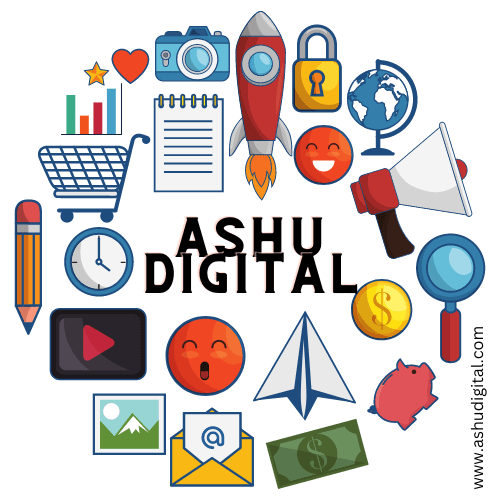In today’s fast-paced business environment, talent management is undergoing a massive transformation. Companies are leveraging cutting-edge technologies and innovative strategies to streamline HR processes, enhance employee engagement, and improve workforce efficiency. At jiWebTech, we understand the significance of these changes and offer comprehensive talent management solutions to help businesses stay ahead. Let’s explore some key trends shaping the future of HR and talent management.
1. Artificial Intelligence and Automation
AI-powered talent management systems are revolutionizing HR by automating repetitive tasks, improving candidate sourcing, and providing predictive analytics for better decision-making. AI-driven chatbots and virtual assistants help in screening resumes, scheduling interviews, and answering employee queries, reducing HR workload significantly.
Additionally, AI-powered performance tracking tools help organizations monitor employee productivity and suggest personalized training programs. Automated onboarding systems enhance the new hire experience by providing step-by-step guidance, reducing paperwork, and streamlining orientation programs.
2. Data-Driven Decision Making
HR analytics is becoming a crucial aspect of talent management. Organizations are leveraging big data and machine learning algorithms to analyze workforce trends, employee performance, and engagement levels. These insights enable businesses to make informed hiring, training, and retention decisions.
Predictive analytics can forecast employee turnover rates, helping HR professionals develop proactive strategies to improve retention. Real-time dashboards provide HR managers with valuable workforce insights, allowing them to adjust policies and employee benefits accordingly.
3. Employee Experience and Engagement
A positive employee experience is essential for talent retention. Companies are adopting personalized HR solutions that focus on employee well-being, work-life balance, and career growth. Digital engagement platforms, gamification, and real-time feedback systems enhance employee satisfaction and productivity.
Organizations are also implementing Employee Assistance Programs (EAPs) to support mental health and well-being. Personalized career development plans, mentorship programs, and regular performance feedback further contribute to employee engagement and job satisfaction.
4. Remote Work and Hybrid Work Models
The rise of remote work has led to the adoption of cloud-based HR platforms that facilitate seamless collaboration, virtual onboarding, and remote performance management. Flexible work arrangements have become a key factor in attracting and retaining top talent.
Businesses are investing in remote workforce management tools that track productivity, encourage virtual team collaboration, and maintain transparency. Digital HR platforms with integrated video conferencing and project management tools help create a cohesive work environment for remote teams.
5. Upskilling and Continuous Learning
With rapid technological advancements, businesses must invest in continuous learning and development programs. AI-driven learning management systems (LMS) help employees acquire new skills, stay relevant, and grow within the organization.
Microlearning, where employees consume bite-sized learning modules, is gaining popularity. Many companies are also offering virtual training programs, industry certifications, and cross-training opportunities to keep their workforce competitive and future-ready.
6. Diversity, Equity, and Inclusion (DEI)
Organizations are prioritizing DEI initiatives to create inclusive workplaces. AI-powered talent acquisition tools help eliminate bias in hiring, while DEI analytics track diversity metrics and ensure fair representation at all levels.
Businesses are also implementing inclusive leadership training programs to foster an equitable workplace. Employee resource groups (ERGs) help support underrepresented employees by providing networking opportunities and mentorship programs.
7. Cloud-Based HR Solutions
Cloud-based HR platforms provide scalable, flexible, and cost-effective talent management solutions. These systems enable businesses to streamline HR processes, manage employee data securely, and enhance collaboration across global teams.
Advanced cloud-based solutions offer self-service portals for employees to access their payroll, benefits, and training resources, reducing the administrative burden on HR teams. These systems also ensure data security and compliance with labor regulations.
8. Performance Management and Real-Time Feedback
Traditional annual performance reviews are being replaced with continuous feedback mechanisms. Real-time performance tracking tools help managers provide instant feedback, identify skill gaps, and set personalized performance goals for employees.
Organizations are implementing 360-degree feedback systems that allow employees to receive input from peers, managers, and subordinates. This holistic approach enhances employee growth and development, fostering a culture of continuous improvement.
Conclusion
The future of HR is evolving rapidly, driven by technology and innovative strategies. Businesses that embrace these trends will gain a competitive edge in attracting, developing, and retaining top talent. At jiWebTech, we offer advanced talent management solutions tailored to meet the needs of modern businesses. Stay ahead of the curve and revolutionize your HR processes with our cutting-edge solutions.
FAQs
1. What is talent management? Talent management refers to the strategic approach of attracting, developing, and retaining employees to enhance business performance and workforce productivity.
2. How can AI improve talent management? AI can automate repetitive HR tasks, provide predictive analytics for decision-making, and enhance candidate sourcing and employee engagement.
3. Why is employee experience important in talent management? A positive employee experience leads to higher retention rates, increased productivity, and a more engaged workforce.
4. What are the benefits of cloud-based HR solutions? Cloud-based HR solutions offer flexibility, scalability, secure data management, and improved collaboration across teams.
5. How can companies promote diversity and inclusion in the workplace? Companies can use AI-driven hiring tools, implement DEI programs, and track diversity metrics to ensure an inclusive workplace.
6. What is the role of performance management in talent management? Performance management helps employees set clear goals, receive continuous feedback, and track their progress, leading to professional growth and increased productivity.
7. How does upskilling benefit businesses? Upskilling enhances employee skills, ensures workforce competitiveness, and helps companies stay ahead in their industry.
8. What are the key features of a modern HR platform? A modern HR platform includes AI-driven analytics, cloud-based accessibility, real-time feedback tools, and employee self-service portals for seamless HR operations.



